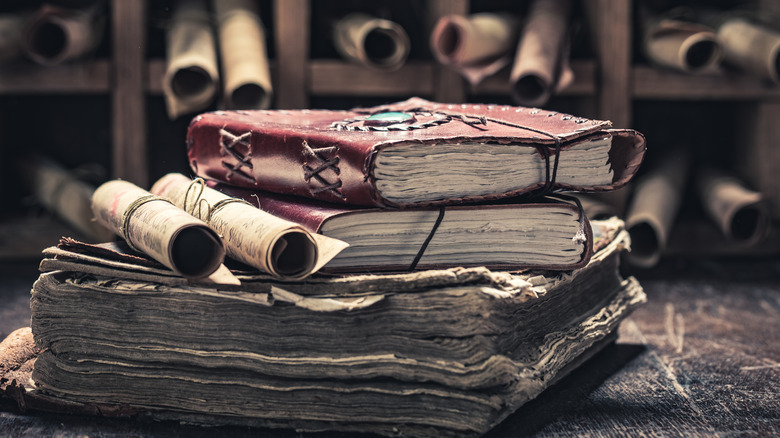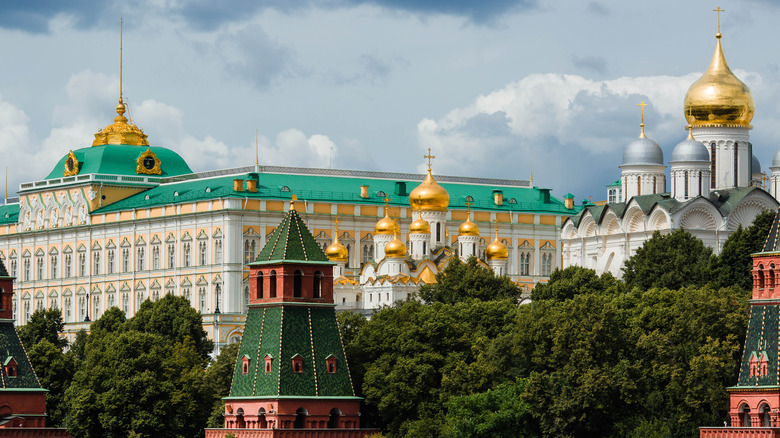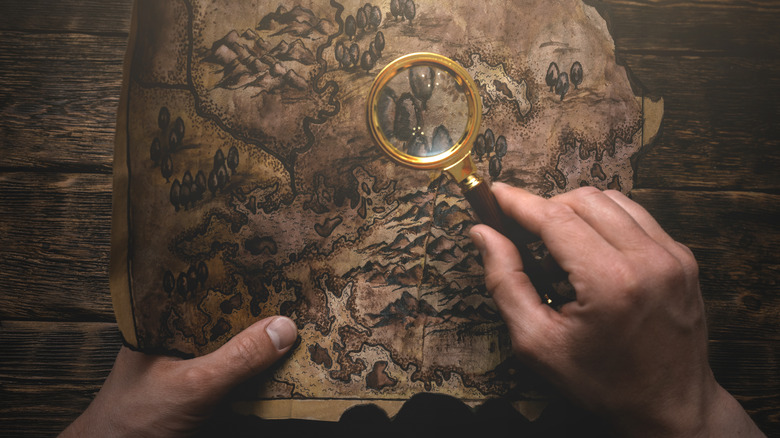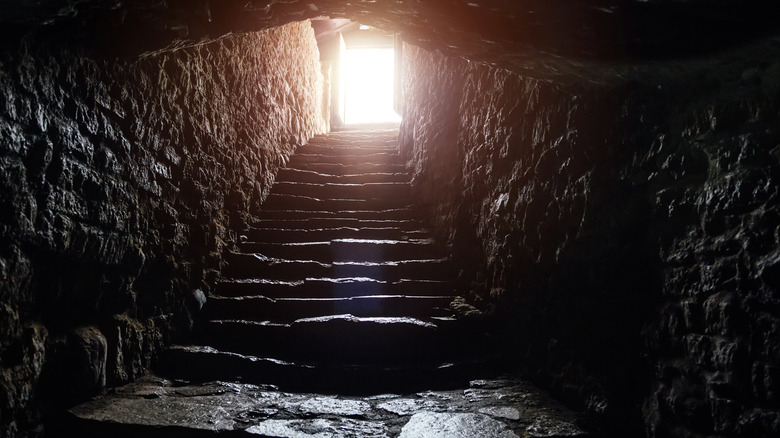The Real Reason We Can't Find The Lost Library Of The Moscow Czars
It's hard to resist a great, lost treasure. Movies like the "Indiana Jones" franchise, books like "The Hobbit" and "Treasure Island," and countless TV specials testify to the enduring allure of discovering something old, extremely valuable, and devilishly hard to find. The allure is so strong that sometimes people search for treasures that may not even exist.
One such treasure trove is the Lost Library of the Moscow Czars, sometimes called the Golden Library (via the Journal of Library History, posted at JSTOR). The treasure in this fabled hoard isn't gold and silver, but books: irreplaceable original manuscripts from Byzantine Greece, ancient Greece, ancient Egypt, and even, according to Book Riot, from China, collected by the Russian emperors, or czars, beginning in the 15th century.
Unlike the Library of Alexandria, the Lost Library of Moscow was never destroyed. Much more mysteriously, it seems to have disappeared — that is, if it ever existed. But whether it exists or not, it has left a trail of treasure hunters, from professors and adventurers to emperors and dictators, hot on its trail through Moscow.
First reports of the library
The first mention of a massive library in Moscow comes from an account of Maxim the Greek, according to the Journal of Library History. Maxim was a Byzantine monk and philosopher of the early 1500s. As the country now called Russia accumulated new territory, its leaders looked to Constantinople, the Byzantine capital, for help educating its new elites. Constantinople sent celebrated intellectuals to Moscow, including Maxim.
A Russian prince named Andrei Kurbsky reported that the Grand Duke Ivan III (the title czar did not exist yet) showed Maxim his personal library of rare books. Maxim was stunned: Even in Greece, the monk told Kurbsky, he had never seen so many Greek books in one place.
Where these books had come from originally remains lost to history, but the grand dukes and czars of Russia continued to collect rare texts. Did Ivan III's wife Sophia Palaiologina, a Byzantine princess, bring them with her to Moscow as part of her tremendous dowry?
The hunt begins
Over time, reports of the library began to circulate. A German clergyman named Wetterman reportedly met with Ivan the Terrible, now czar of Russia, around 1600. Ivan invited Wetterman to see a secret storeroom under the fortress of the Kremlin. Wetterman, expecting to find a weapons cache, was shocked to find a huge collection of old books. The czar explained that the collection had been even bigger, but some of the volumes had been lost to a fire.
In the 1720s, a Russian officer would recount a story he'd heard from the 1680s, of a secret room filled with locked trunks, somewhere under the Kremlin. The princess-regent, on hearing of the room's discovery, forbade anyone to enter it.
In 1819, an Estonian professor claimed to discover a mysterious catalog of books belonging to the czars. Many of the authors listed were and remain completely unheard of, but others, like Plato and Virgil, were famous for their lost work. The catalog also mentioned 142 volumes of Livy's history of Rome — only 35 volumes of the original work currently survive.
In the 1890s, a professor from the University of Strasbourg went to Moscow with a fragment of one of the "Homeric Hymns," convinced that it came from the lost library. He never found the hoard of books, but returned to France convinced it was hidden below the Kremlin.
From emperors to adventurers
The legend of the Golden Library has fascinated men of power as well as intellectuals. In 1812, when Napoleon captured Moscow, he reputedly sent scholars to look investigate the library. They turned up nothing (via The New York Times, March 6, 1929). Of course, Napoleon had a fondness for both intellectual discoveries — his staff discovered and translated the Rosetta Stone — and for spooky, underground places, like the Paris Catacombs.
In the 20th century, Joseph Stalin, a man who enjoyed comparisons to Ivan the Terrible, seems to have been unable to resist the allure of his predecessor's books. It's not clear whether Stalin ever ordered an investigation, but if he did, nothing ever came of it. That we know of.
Since then, researchers and amateur treasure hunters have prowled around the Kremlin and other historical sites in Russia, but none have found a trace of the Golden Library. Does the library exist, locked away in a tunnel under Moscow? Or is it only a kind of Maltese Falcon — the stuff that dreams are made of? To this day, no one in the world is sure.



